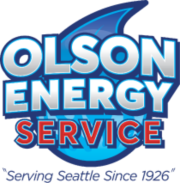-
Get the FAQs and Answers About Tankless Water Heaters
While traditional water heaters use a tank to heat water, tankless water heaters heat water on demand. If you’re thinking of installing a tankless water heater in your Seattle home, you may be wondering whether the investment is worth it. Here are some of the most commonly asked questions about tankless water heaters.
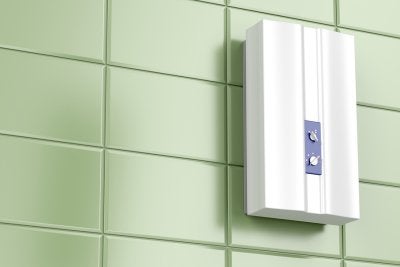
Do tankless water heaters use less energy than traditional water heaters? Yes. Because tankless water heaters don’t have to keep water heated constantly, they don’t need to use as much energy as standard water heaters do. This is both good for the environment and good for your household budget. With a tankless water heater, you can enjoy hot water whenever you want without having to be concerned about wasting energy.
Will a tankless water heater cost a lot to operate? While tankless water heaters cost more to install than standard water heaters, they also cost less to operate on a regular basis. According to Energy Star , households that install tankless water heaters can expect to save at least $100 a year on their HVAC expenses.
Do tankless water heaters require a lot of space? In fact, tankless water heaters take up much less space than most standard water heaters. While traditional water heaters tend to be large and bulky, a tankless water heater is compact and can be installed in virtually any part of your home. Many homeowners appreciate the versatility allowed by tankless water heaters, which can be placed anywhere from garages to attics.
Will it be more difficult to get hot water with a tankless water heater? You might be concerned that you won’t be able to get heated water as reliably with a different type of water heater, especially if you have a large household where more than one person might need hot water. There’s no need to worry: A tankless water heater will allow you to get hot water from multiple taps—such as your shower tap and your kitchen sink tap—at the same time.
““
-
Should You Switch to a Ductless Mini-Split?
If you’re looking for a smart and cost-effective alternative to having a central HVAC system in your Seattle home, you might want to consider the potential of a ductless mini-split system . A mini-split system is a type of HVAC system that works without the ductwork that central systems require to function. Instead, a mini-split system uses an outdoor unit and an indoor unit—connected by wires through a small hole in the wall—in tandem to heat and cool one or more rooms inside your home. Mini-split systems are easy to add to homes that you’ve just moved into, and they’re a terrific way to upgrade your current house as well. If you don’t want to install ductwork, or if your home is small, a mini-split system may be a better option for you than a new central HVAC system. Mini-split systems are one of the most efficient climate control options available, and they are simple and convenient to operate.
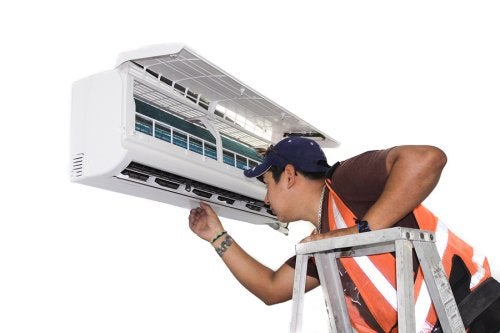
-
Tankless Water Heaters to Consider for Your Home
Tankless water heating has surged in popularity in recent years as homeowners across the globe seek energy-efficient and space-saving solutions for their households. With a broad range of options available, you may be unsure which tankless water heater is best. Follow this guide to help you understand the fundamentals, weigh the pros and cons, and consider the types of tankless water heaters for your home.
How Do Tankless Water Heaters Work?

Unlike conventional storage tanks that maintain a large volume of hot water, tankless water heaters generate hot water on demand. They use high-powered gas burners or electric elements to rapidly heat water as it flows through the unit, delivering freshly heated water directly to your faucet without storing it in a tank. This on-demand functionality is highly efficient, space-saving, and eco-friendly.
Pros and Cons of Tankless Water Heaters
Before you decide to switch to a tankless water heater, carefully weigh the pros and cons of this technology.
Pros
- Efficiency and savings: Tankless water heaters only operate when needed, making them highly energy efficient. In fact, they reduce energy consumption by an average of 24 to 34 percent, leading to significant utility savings.
- Longevity: Tankless water heaters are designed for durability, with a lifespan of up to 20 years—around double that of traditional tank models. This longer operational life adds to your long-term savings.
- Small installation footprint: Unlike bulky tank water heaters, tankless units are compact and can be wall-mounted indoors or outdoors, providing more installation flexibility. This frees up valuable space in your home, making tankless units particularly advantageous for smaller residences.
- Continuous hot water supply: Because tankless units provide hot water on demand, you never run out, even after extended usage. This ensures a constant supply of hot water for endless back-to-back showers.
Cons
- Higher initial costs: Tankless water heaters cost more to purchase and install than traditional models. The potential need to upgrade your electrical system or ventilation setup adds to the upfront costs. Even so, the ongoing energy savings and long lifespan of tankless water heaters can offset the higher upfront costs, making them a financially sound investment.
- Limited output: While they provide continuous hot water, tankless heaters struggle to keep up if multiple taps are in use simultaneously. This reduced flow rate could be problematic for large households or homes with high simultaneous hot water demand.
- Inconsistent temperatures: If you shut off the water or lower the flow rate to a trickle, the tankless unit turns itself off. This means when you restore the hot water flow, the temperature may drop before it becomes hot again. This inconvenient phenomenon, called a “cold-water sandwich,” may still be worth it to enjoy significantly more efficient water heating.
Types of Tankless Water Heaters
Even within the category of tankless water heaters, you have a few styles and fuel types to choose from:
- Whole-house tankless water heaters are robust enough to cater to the hot water needs of an entire household. They are installed in a central location, often where your old water heater was installed, and service every faucet and fixture in your home.
- Point-of-use tankless water heaters supply hot water to a single point, such as a bathroom or a kitchen sink. They are compact and easy to install within the cabinet or high on the wall. This can be a cost-effective solution for adding hot water functionality to specific parts of your house while eliminating the wait time for hot water.
- Electric tankless water heaters are easy to install because they don’t require ventilation. However, they may draw substantial power, calling for an electrical system upgrade in some cases. These units are generally well-suited for smaller homes or point-of-use applications.
- Natural gas tankless water heaters are more powerful than electric models, capable of supplying larger volumes of hot water. However, they require proper ventilation to ensure safe operation, which limits where they can be installed.
- Thermostatically controlled tankless water heaters are sophisticated models that use flow-based power modulation to maintain a more precise temperature despite changes in flow rate. This makes every shower more comfortable and helps prevent scalding at the tap, a significant benefit in homes with young children or older adult residents.
Tankless Water Heater Solutions in Seattle, WA
Olson Energy Service is a trusted name in HVAC, electrical, and plumbing services. We have been serving Seattle since 1926 as a family-owned and operated business. Our skilled and experienced technicians can help you select a tankless water heater and conduct a professional installation, ensuring your complete satisfaction for years to come. If you’re ready to go tankless, please call us today at 206.782.5522 or contact us online to request tankless water heater services in Seattle, WA.
-
Compelling Reasons to Choose a Tankless Water Heater
In recent years, hot water heater technology has evolved to include many different types of tankless models. When you install a tankless water heater in your home, you will enjoy an unlimited supply of hot water that is generated on demand. By purchasing a tankless water heater from a contractor that installs hot water heaters in Seattle, you will be able to pick out a model that meets your household’s daily hot water requirements. If you are on the fence about whether tankless technology is right for your home, read these compelling reasons to choose a tankless water heater.

Endless Hot Water Supply
A conventional hot water heater stores its entire supply of hot water in a large, insulated tank. During times of high demand, your conventional water heater may run out of heated water. If you are tired of taking cold showers or running out of hot water at inconvenient moments, a tankless water heater may be the best choice for your household. This type of hot water heater creates an endless supply of hot water.
Prolonged Lifespan
When you purchase a tankless hot water heater, you can feel great knowing that your investment will last for up to two decades or longer. Although tankless hot water heaters often require a larger initial investment, the cost is offset by their long lifespans. In comparison, you will typically find yourself replacing your conventional hot water heater at least once every fourteen or fifteen years. For this reason, a tankless water heater is a smart investment for your household.
Better Efficiency
Along with providing you with an unlimited supply of hot water, a tankless water heater will also offer better efficiency for your plumbing system. Rather than continually using up energy and natural resources, a tankless hot water heater only turns on when it is needed. After you have purchased and installed a tankless water heater in your home, you may find that your monthly hot water bill and energy bill are dramatically reduced.
““
-
When to Consider a Tankless Water Heater?
If your home is in need of a new water heating system, you may want to consider shopping for a tankless water heater. Unlike a conventional water heater, which uses energy to store hot water throughout the day and night, a tankless water heater only turns on when it senses a demand for hot water. With services from a company that offers water heater replacement in Seattle, you will be able to install a new tankless water heater that will provide you with terrific performance for many years to come. Let’s take a look at when to consider a tankless water heater for your home.
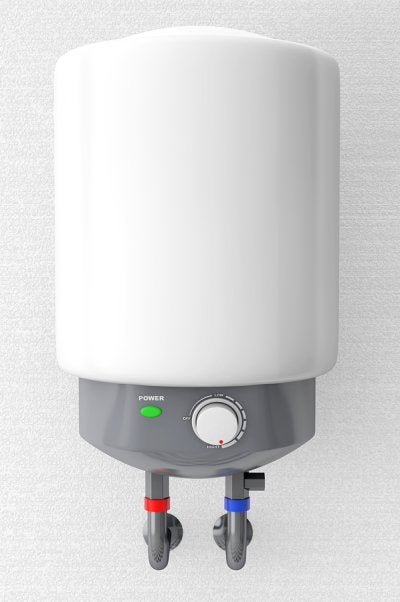
Your Current Water Heater Operates Inefficiently
When you start to notice that your conventional water heater is no longer providing you with good efficiency, it may be time to consider a tankless installation. Some of the signs of an inefficient water heater include higher hot water bills or a system that frequently runs out of hot water. With a tankless unit, you will enjoy much better efficiency from your water heating system.
You Want to Save Space in Your Home
Apartment dwellers and families that live in smaller houses are always looking for ways to free up extra space. You may have noticed that the bulky tank of your conventional water heater takes up a lot of space in your home. If you want to save space and free up additional room for storage, it may be time to go tankless.
You Want to Make a Long Lasting Investment
Purchasing a new water heater can be a major expense for any household. If you want to make sure that your new water heater is a great investment in the long run, you may want to consider your tankless options. Tankless water heaters have an average lifespan of up to twenty years, which is twice as long as the ten year lifespan of a conventional unit. After your tankless water heater has been installed, you can rest assured that it will remain operational for decades in the future.
““
-
Signs That You Could Benefit from Tankless Water Heater Installation
A tankless water heater is good for your home and good for the environment. They’re an ideal option for people looking for a replacement water heater and who want an alternative to the conventional models. Could a tankless water heater in Seattle be right for your home? Here are some signs that a tankless system could be the best choice for you.
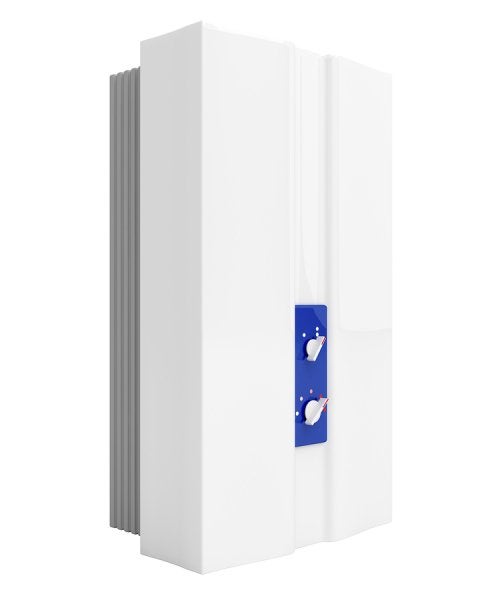
You’re always running out of hot water.
Conventional water heaters have large tanks that store a certain amount of hot water. When that water is gone, water must be reheated before you can get hot water again. Tankless water heaters heat water on demand. This means that you’ll never face a cold shower again. One thing to keep in mind is that a tankless water heater only puts out a certain number of gallons at a time, so if your family typically runs the dishwasher and the washing machine while you’re showering, you may that the water is not as hot as you would like or that you don’t have enough water pressure. However, if you don’t frequently use multiple appliances at once, a tankless heater is an ideal solution to hot water problems.
Your hot water heater is taking up too much space.
Tankless water heaters are ideal for small living spaces or any home that wants to reclaim the space that is currently being taken up by a conventional water heater. Tankless heaters consist of a small, wall-mounted system rather than a large tank, so they help to free up a significant amount of space in your home.
You want to cut your energy costs.
Tankless water heaters have an enormous energy advantage over conventional water heaters, because they don’t require any kind of standby heat source. Tankless systems only kick into action when you need hot water, which drastically reduces the cost of operation. A tankless water heater requires a bigger up front investment, but this additional expense can be recouped in lower energy bills from not continuously heating unused water.
““
-
Tips for Upgrading Your Furnace
If you are like many families, chances are that you spend thousands of dollars on your home energy expenses every year. In order to save money on your energy bills during the winter season, you may want to consider installing a new furnace in Seattle. This video will provide you with some essential tips to keep in mind when you are upgrading your boiler, heat pump, or furnace. By working with a company that specializes in furnace service, you can rest assured that your technicians will take pride in the quality of their work.
Once you have decided that a furnace upgrade is the right choice for your home, you will want to act fast to set up your appointment. By replacing your furnace before the winter season arrives, you can make sure that you and your loved ones are warm and comfortable throughout the coming months.
““
-
Could Your Home Benefit from HVAC Zones?
Your home’s air conditioner and heat pump play a major role in keeping your family comfortable, but their function can account for a significant amount of your household’s energy usage. Are you looking for ways to get more out of your HVAC near Seattle ? If so, then you may benefit from HVAC zones.
Watch this video to understand the role of zones when it comes to cooling and warming your home. Some rooms in the home are naturally warmer or cooler than others. However, employing an HVAC zoning system can allow the unit to heat and cool your home more evenly. Also, a zoning system can be used to send conditioned air to specific areas of the home when others aren’t in use.
-
A Look at Tankless Water Heaters
You have to heat your water somehow, but some methods are much more efficient than others. Standard water heaters can be the right choice in certain situations, but you should also consider the advantages of a tankless water heater in Seattle . This type of heating appliance is convenient, energy-efficient, and inexpensive to operate. If you are in the market for a new water heater, feel free to read on and take a look at tankless water heaters.
If you live in a small space, care about energy-efficiency, and would like to save money on your bills, a tankless water heater may be the way to go. Since this type of water heater does not depend on a large reserve of water, it is much easier to fit one into living spaces of all sizes. The lack of tank also means there is no standby heat loss, which increases the overall efficiency of your water heater and your home. A tankless water heater will heat up your water on the spot, so there is little-to-no waste. This will reduce the cost of your energy bills, allowing you to save money and enjoy a more convenient and efficient household.

-
Understanding the Basics About Tankless Water Heaters
If you have a tankless water heater in Seattle, you know that this type of hot water heater offers numerous benefits and can even reduce your electricity expenditures. Thanks to its on-demand heating capabilities, you won’t need to maintain the temperature of a large boiler using a tankless water heater.
Watch this video to learn more about how a tankless water heater works. A tankless water heater won’t run until there’s a demand for hot water heater in your house, such as when you turn on the hot water tap in the shower. This type of water heater can be up to 30% more efficient than a traditional tank type water heating system. If you’re looking for instantaneous savings, a tankless water heater may be the right choice for your home’s hot water needs.
““
RECENT POSTS
categories
- Uncategorized
- Air Conditioner
- Fireplace Inserts
- Fireplace Insert Installation
- Air Conditioning Installations
- Air Conditioning Units
- Air Conditioner Maintenance
- HVAC Professionals
- Heat Pump Installation
- Heating and Cooling
- HVAC Unit
- Heat Pumps
- Furnace
- Furnace Service
- Tankless Water Heaters
- Water Heaters
- Energy Efficiency
- HVAC Contractors
- Olson Energy Service
- Mini-Split Systems
- Ductless Air Conditioner
- Residential Services
- Seasonal Boiler Maintenance
- HVAC Maintainance
